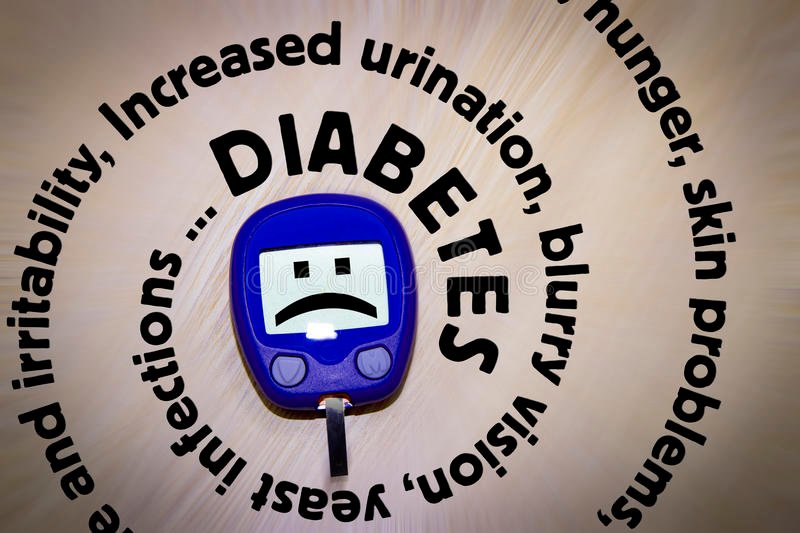Diabetes is a chronic disease that impacts millions of individuals throughout the world. If left untreated, it can cause major health problems such as blindness, renal failure, and even amputations. The early warning signals of diabetes, on the other hand, are typically subtle and easy to detect, and many individuals may not even know they have the illness until it has developed to a more severe state.
Elevated blood sugar might generate subtle, unnoticeable symptoms that can catch you off guard. The evident indicators of type 2 diabetes, frequent urination, and increased thirst, are frequently minor and readily ascribed to other sources.
Many people are unaware that they actually have high blood sugar levels until they are diagnosed with type 2 diabetes.
What are the diabetic warning signs?
Diabetes, if left untreated, tends to aggravate symptoms over time because chronic high blood sugar levels cause more damage to your tissues and organs. You may not notice the warning signals at first if they were modest.
Type 2 diabetes symptoms appear more rapidly than type 1 diabetes symptoms. There may be no symptoms at all in the early stages of diabetes.
If you observe any probable diabetes warning symptoms, you should immediately see your doctor. Diabetes, if left untreated, can seriously harm your body’s tissues and organs.
Diabetes, if left untreated, can cause heart disease, stroke, nerve and kidney damage, eyesight loss, and other complications. You can harm your organs even if your blood sugar levels are mildly elevated.
In this blog article, we’ll talk about the warning signs of diabetes and how to take control of your health and avoid major problems. Whether you have diabetes or believe you may have it, this post will give you essential insights to help you manage your health efficiently and monitor the signs of diabetes for yourself or a loved one.

10 Early Signs of Diabetes
1. You go to the toilet more frequently.
Needing to use the lavatory more frequently than usual, especially at night, indicates that your blood sugar is out of balance. Dr. Pantalone, for example, says one of his patients came in for an evaluation after a family member spotted him using the lavatory at each commercial break while they were watching TV.
2. You frequently have urinary or yeast infections
Sugar appears in your urine when your blood sugar is excessive and your kidneys cannot filter it adequately. Excess sugar in a warm, damp environment, especially in women, can induce urinary tract and yeast infections.
3. You’re losing weight without consciously trying.
If you have diabetes, your body’s ability to utilise glucose (sugar) for energy is impaired. Instead, your body will begin to burn fat reserves, resulting in unexpected weight loss.
4. Your vision is deteriorating.
Excessive blood sugar levels might distort your eyes’ lenses, impairing your vision. Diabetes might cause changes in your eyewear prescription or vision.
5. You are Often Feeling Weary or Tired
Dehydration from constant urination, which can interrupt sleep) and kidney impairment are two underlying reasons for the exhaustion that may be related to diabetes/high sugar levels. This tiredness is frequently persistent and might interfere with your regular routines.

6. Extreme thirst
Frequent urination can lead to dehydration and an increase in thirst. Yet, drinking more does not quench the thirst.
7. Insatiable hunger
Your body converts food into glucose, which your cells utilise for energy. Nevertheless, if you have diabetes, your cells can’t properly absorb glucose, so your body doesn’t obtain enough energy from the food you eat. As a result, your body is continually hunting for nourishment, and you’ll feel hungry even if you recently ate.
8. You’ve noticed skin discolouration.
Dark skin in the neck folds and across the knuckles is something we frequently observe in people before they are diagnosed with diabetes. This disorder, known as acanthosis nigricans, can be caused by insulin resistance.
9. Delayed Wound and Cut Healing
Excessive blood sugar levels can harm neurons and blood vessels, reducing blood circulation. Weak blood circulation prevents nutrients and oxygen from reaching cuts and wounds, preventing appropriate healing. As a result, recovery might take weeks or months, increasing your risk of infection.10
10. Feeling Pulsing or Numbness
Tingling, numbness, or discomfort in your hands and feet might be caused by poor blood circulation and nerve injury.
How is diabetes identified?
Many get tested for diabetes because they have symptoms that might be early warning signs. You might be experiencing one or more of the diabetic warning signals. If you do, you should make an appointment with your doctor.
This is why it is vital to check your health regularly. Basic health screenings are an integrated approach to examining a person’s overall health and discovering any health problems early in their development, when they may be simpler to treat or manage.

Final Thoughts
Diabetes type 1 is often diagnosed in childhood. Early signs sometimes include accidental weight loss, bedwetting, and flu-like symptoms. Adults are most likely to be diagnosed with type 2 diabetes. Some early signs are extreme thirst, frequent urination, and poor wound healing.
Untreated diabetes symptoms frequently worsen and are either moderate or invisible in the early stages. One or more blood tests can confirm a diabetes diagnosis. If you suspect you have diabetes, consult your doctor. Managing your symptoms and averting more significant health concerns requires staying on top of your illness and treating it efficiently.
As a leading digital healthcare platform based in Kuala Lumpur, we offer the best health screening packages in Malaysia, including mobile and full health screenings for men and women tailored to your needs.
Qmed Asia also offers home-based health screening services performed by certified medical professionals, so you’ve nothing to worry about throughout the screening process. Contact us now and schedule your health screening with us!




